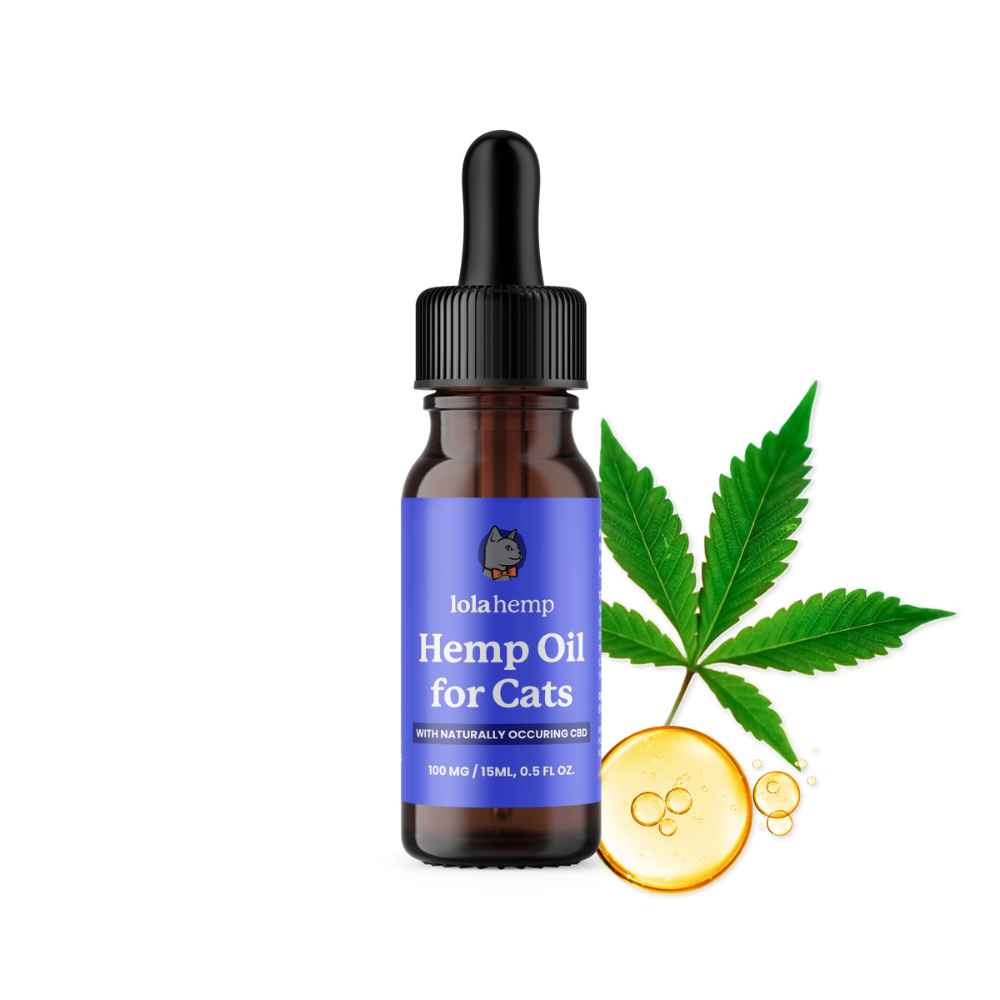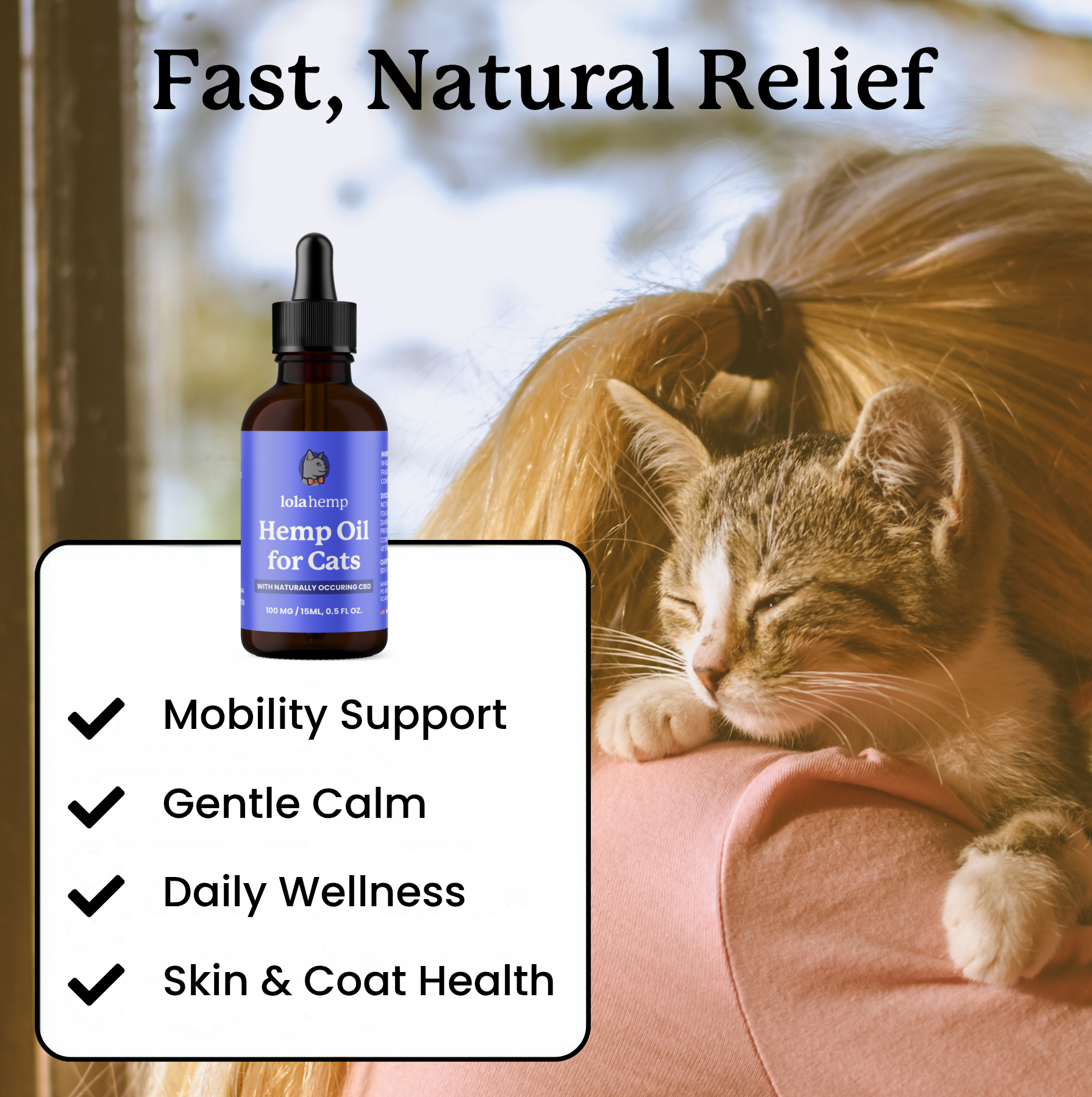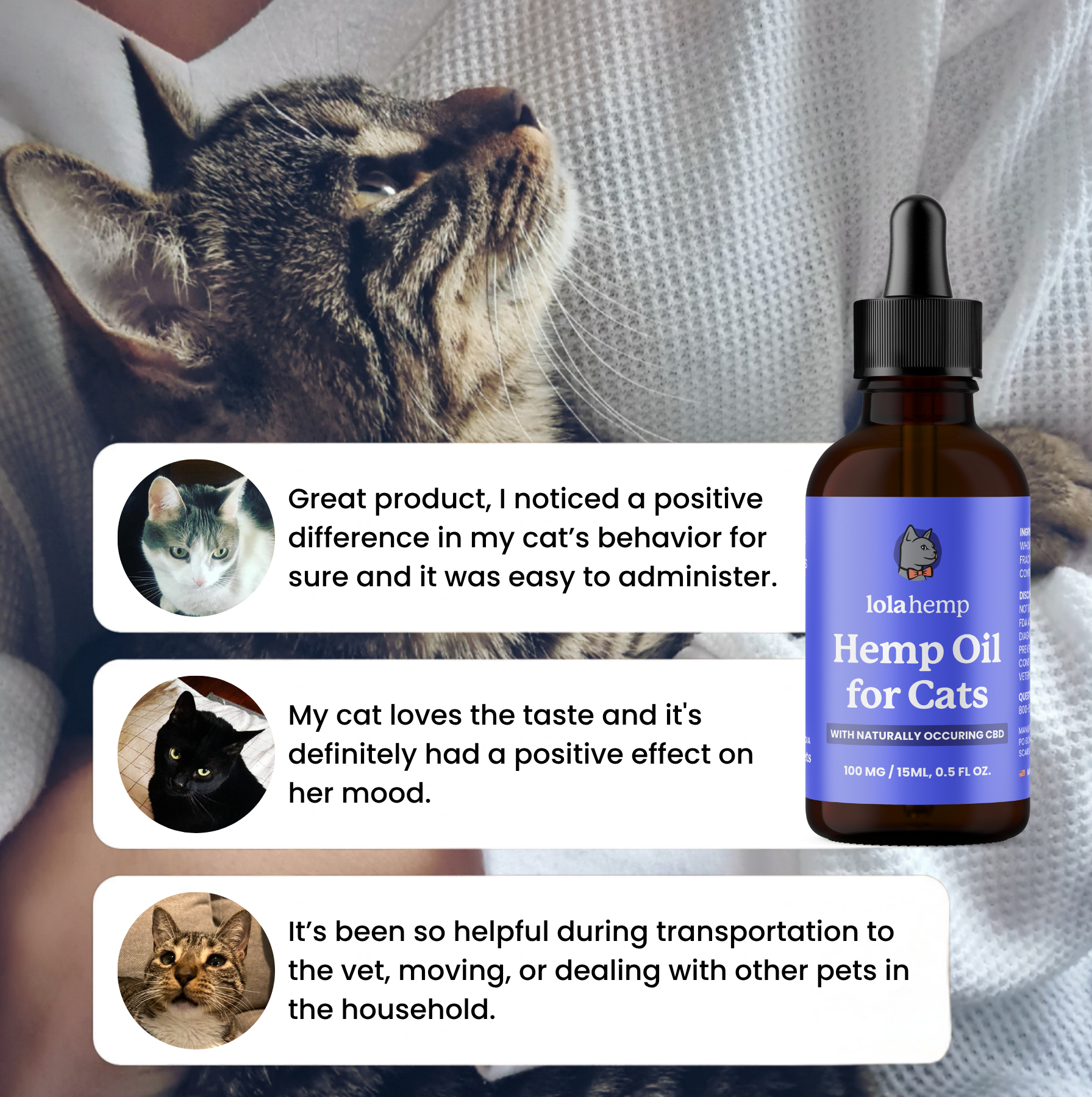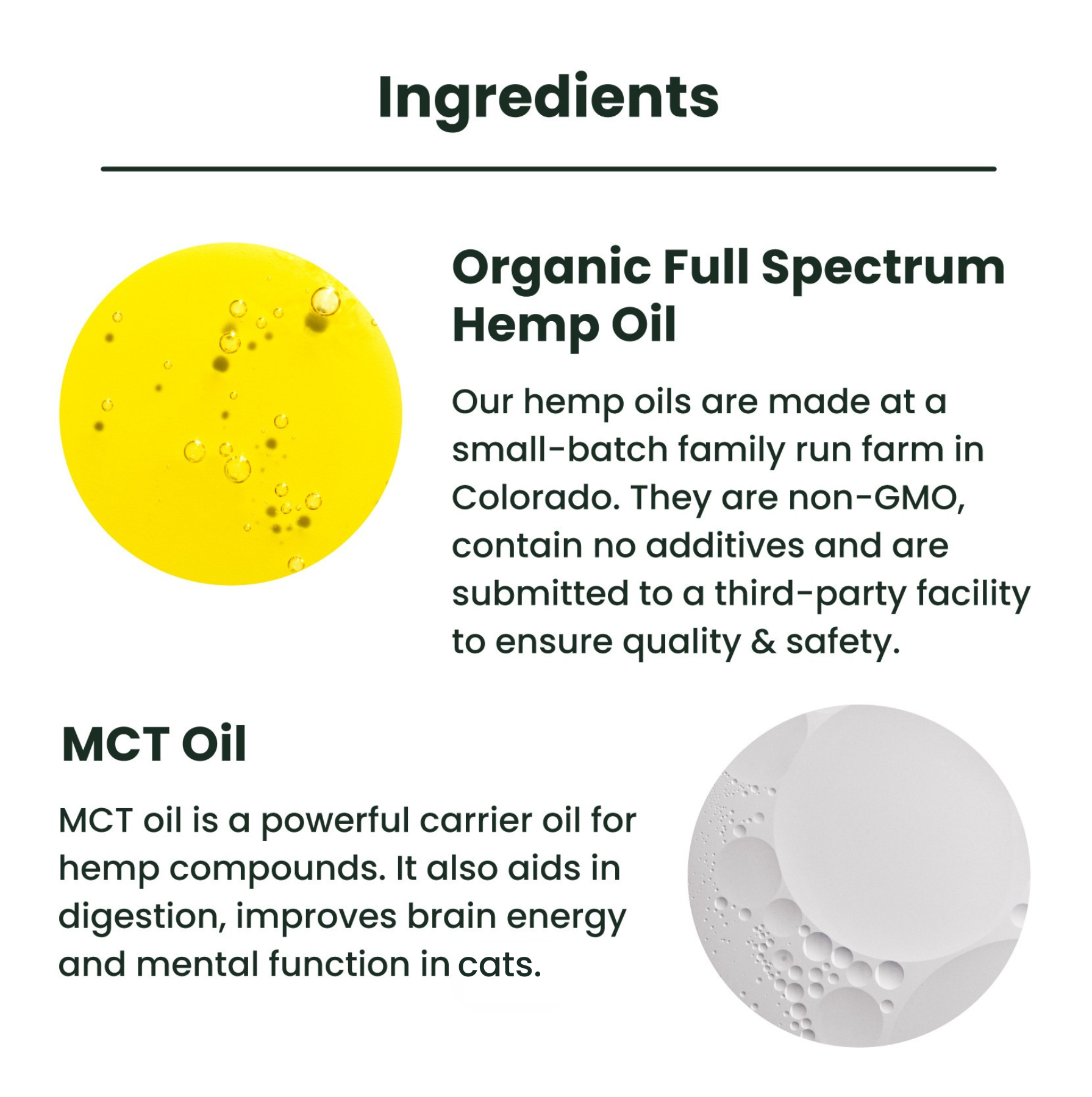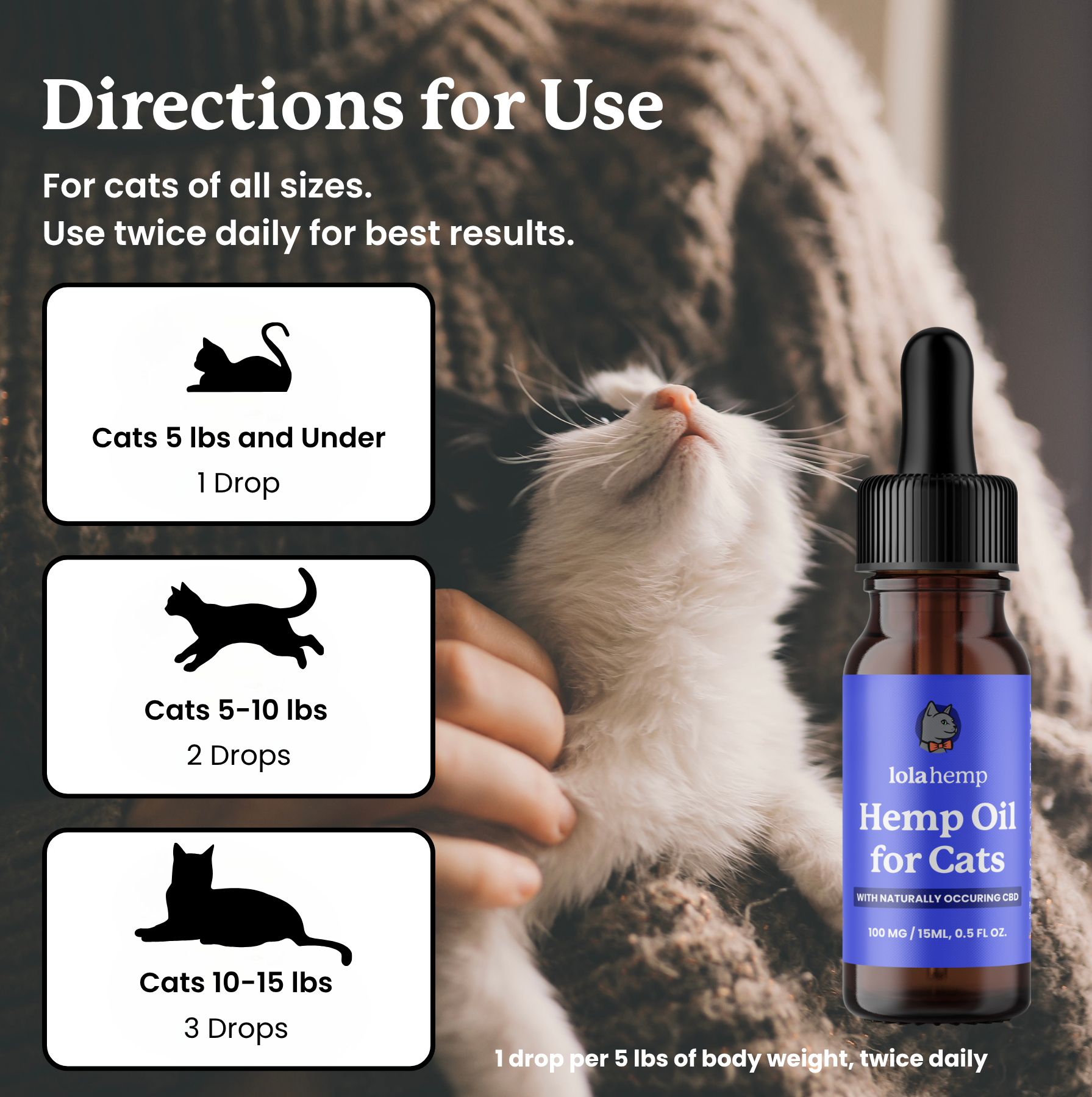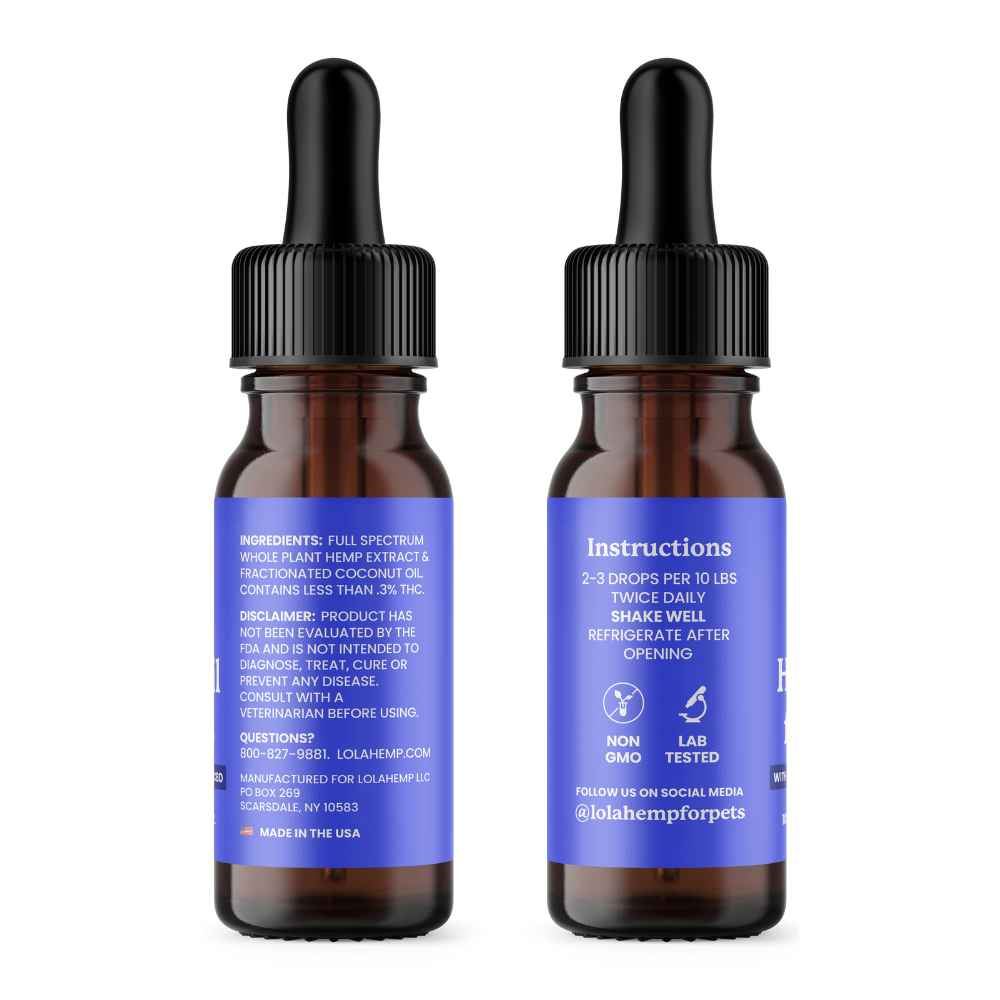As a general rule of thumb, start with 1mg of cat CBD oil per 5 pounds of your cat's body weight and only use CBD oil made for cats. You must also follow the manufacturer's guidelines on how to use CBD oil for cats effectively.
It's always best for cat owners to start with a lower dosage and work up gradually until you see results. Results can come in the first days, or up to the first month.
Some cats won't see any benefit, whereas others may experience a significant change. We'll look at the ins and outs of CBD oil for cats in this article, covering benefits, cautions, CBD dosing, and how to select a reputable product.

Understanding Our Cat CBD Dosage Chart
Cats have smaller bodies than dogs and humans, making it very important to give them a size-appropriate dose of CBD.
The Waltham Petcare Science Institute conducted a 6-month study into the tolerability of CBD in cats.
The study found that "healthy cats tolerate long-term daily feeding of cannabidiol [CBD]." One of their key takeaways was that long-term daily CBD dosing at 4mg/kg of a cat's body weight is safe for healthy cats.
In terms of a cat's body weight in pounds, 1.81 mg CBD per pound of body weight per day is technically safe.
As an example, if your cat weighs 10 pounds:
- The maximum amount of CBD you can give them safely in one day is 18mg.
- You should not start with that dosage.
- Start with a small dosage and work your way up.
Start by giving your cat 1mg of CBD per 5 pounds of body weight, twice daily.
Start Small, Work Your Way Up
This small dosage is a perfect place to begin because it allows you to assess the effect that CBD has on your cat. Some cats might not respond as well to CBD oil, so starting small is the safest bet.
If your cat shows negative side effects from the oil, stop giving your cat CBD and consult with your veterinarian on the next steps. It could be that the oil you're using isn't formulated for cats, or it was crafted with additional ingredients that don't agree with your cat's system.
When Should You Increase Your Cat's Dosage?
CBD oil can take a little time to take effect.
You might not notice results within the first few days. If you haven't seen results after 10 days of regular dosing, add 1mg to each daily dose of CBD oil. Only do this if your cat responds well to the oil and hasn't had any negative side effects.
Complete another 10-day cycle, and increase again by 1mg per dose.
Always ensure that you're not giving your cat more than 1.8mg per pound of body weight per day. After the third cycle, you can continue giving your cat the same dosage and wait for results to show.
If you finish your first bottle of oil without results, there's a chance your cat won't see any benefits from CBD. It can take a period of 6 months or more for CBD to reach peak levels in the blood and contribute to the most beneficial results, although early signs of improvement should show before then.
Final Thoughts on CBD Dosage for Cats
The optimal starting dosage of CBD for cats is 1mg per 5 pounds of body weight. If you don't see results, it's recommended that you increase very gradually—only by 1mg each time you make an increase.
All changes to your cat's dietary regimen or healthy routine should be approved by your veterinarian. The information above pertains to ingestible CBD products for cats.
You can also explore topical products that are designed to address topical issues like dry paws, skin spots, and more. The usage directions for topical products differ from the guidelines for ingestible products.
Frequently Asked Questions About CBD Dosage for Cats
How much CBD should I give my cat to start?
The recommended starting point is 1mg of CBD per 5 pounds of your cat’s body weight, given twice daily.
How long does it take to see results from CBD in cats?
Some cats may show results within a few days, while others may take up to 2–4 weeks of consistent dosing.
Can I give my cat too much CBD?
Yes. While CBD is generally well-tolerated, excessive amounts may cause drowsiness or digestive upset. Do not exceed 1.8mg per pound of body weight per day.
How do I know when to increase my cat’s CBD dosage?
If after 10 days you see no improvement—and your cat is responding well with no side effects—you can increase by 1mg per dose.
Is CBD safe for long-term daily use in cats?
Research suggests that CBD is well-tolerated in healthy cats for long-term daily use, but always consult your veterinarian before prolonged supplementation.

